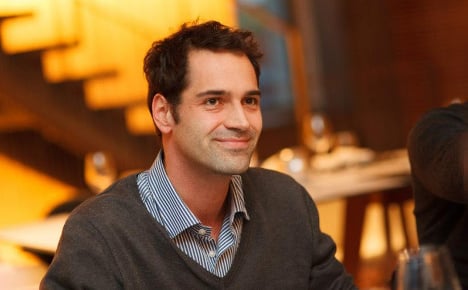Zyncd is a crowdsharing tool that matches people looking for advice with experts inside a network and from other trusted networks. Schneider has founded as well as led five start-ups in the UK, Germany, and the US and is also currently on the board of two other start-ups.
How did you come up with this business idea?
I've been in the start-up world for over 10 years and survived so far only by relentlessly networking with cool people, asking questions of strangers and helping others with advice. I fundamentally believe that networking is key to success in business – and Zyncd aims to make it a bit easier.
The idea for Zyncd came to me when I noticed how time-consuming it can be to get in touch with the right person for just a few minutes of business advice. One example is the mass emails I receive each week from students from my alma mater, London Business School.
Despite my willingness to help, most of these emails are not relevant to me, and as a result, I don't have time to go through them to see which questions I might be able to answer.
In contrast, Zyncd uses an algorithm to match each search to the expert that can best answer it, for a private 1:1 conversation.
Both the expert and the advice-seeker are each given approximately 11 minutes, like having a quick chat over coffee; long enough to get a problem solved by someone with in-depth knowledge on a subject, but short enough to fit into the workday.
We allow people to network by using what they know to get the information they need.
Networking on Zyncd can lead to collaboration, problem-solving, sales opportunities, or even recruitment – just like in the real world.
What were the initial challenges? How did you overcome them?
After moving back to Germany after 14 years in the US and UK, I found it very difficult to put together a good team as I had no local network to speak of.
My initial team for Zyncd was from all over the world but we soon realized that we had to restructure the team to fulfil all three key criteria that I find important for a start-up team: located in the same city as me, super smart and fully committed to this start-up.
The initial business model was met with resistance, despite the fact that I thought it was a revolutionary 'sharing-meets-crowdfunding' idea.
After tough discussions with experts, who said the idea was too broad, we were able to narrow it down to the give-and-take business advice platform that we are now.
As I learned from my three previous start-ups, the difference between a successful and failed startup has been my openness to advice and willingness to ask experts questions.
How has the journey been so far?
Our two main turning points were:
First, the Wayra Accelerator, part of Telefonica, decided to purchase a first licence from Zyncd for internal knowledge exchange between its start-ups, mentors and alumni.
Getting a first sale is always a milestone for a start-up and we celebrated with a bottle of champagne.
The second breakthrough came recently as our matching algorithm beat our human tester in the assessment of CVs.
The machine is able to make matches that were superior to human snap judgments about someone’s skill level, which were often wrong.
How has becoming an entrepreneur changed you, personally?
I have always been one. I started my first real venture when I was 18 and the internet had just started becoming popular in Germany.
My second start-up was during the dot-com boom. I was able to raise venture capital for a sub-par idea that eventually failed and then three years later, my last venture grew to 20 employees and was successfully sold to InnoCentive in the USA.
Any other personal reflections or message to budding entrepreneurs?
Don’t try to be like everyone else. Find your own way. I know that sounds obvious, but I see so many smart, young entrepreneurs who have some kind of start-up-hero in mind they want to emulate.
I think the reason why I have always been an entrepreneur is because I like to go against the grain, I like to do my own thing and just be me.
You can be shy, loud, thoughtful, funny, introvert, fearful, young, old – there is no stereotype of a successful entrepreneur.
So don't try to copy the style of someone you read about, someone who sold his/her start-up for hundreds of millions.
Sparsh Sharma works as a freelance journalist for The Local and blogging about his experiences in Denmark. You can follow him on Twitter at @sparsh_s.



 Please whitelist us to continue reading.
Please whitelist us to continue reading.
Member comments